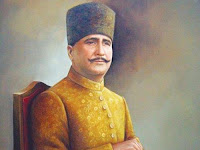Philosophy and Dawah Work

Meditations on the idea of conversion, Dawah and legacy of Muslim philosophers. If we examine sermons and activism of major missionary religions calling for adopting respective religions and even people within different sects of one religion calling for adopting respective sects, how do we choose? The fact remains that in more than 99% cases one is already convinced about the truth of one’s religion and remains in the faith of one’s ancestors/immediate environment. It is often assumed that we are to choose between true and false or this or that religion/sect/school at the cost of hell and that gives urgency to such a question for at least a miniscule fraction of people. How do philosophers in general and Muslim philosophers in particular engage with such calls? Let us explore with more specific reference to one of the greatest Muslim philosopher-sages Al-Farabi. Al-Farabi’s legacy may be invoked in engaging with the phenomenon of missionary spirit of Isl...


